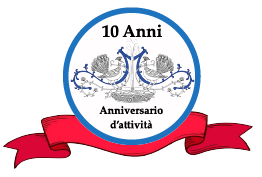The binding relationship of nature to mankind, to his culture, to the effective history of the family and to his work, has, over the years grown in an impressive and imposing manner in Italy. This report, together with the extraordinary artistic, and archaeological heritage as well as the landscape,, unique in the world, has long been giving us a positive economy and well-being, even as far as an unrivaled quality in life on planet earth: there must be a reason for a Chinese, who becoming rich, or an Indian or a South African then, to want to eat Italian, dress Italian, or maybe call his children with Italian names, or furnish his home with Italian furniture.
In these critical times for the global and national economy, defending and strengthening our commitment to protect our extraordinary biodiversity, can help overcoming the crisis more rapidly. In order to safeguard and develop the wealth of biodiversity, as well as in the undertaking of research in new technologies in the field of alternative energy, it would be impossibile not to detect the excellent results that have been achieved to date through the use of the concept of green economy, although at times – and it is worth pointing out here – that the attempt to pursue at all costs “eco-friendly” objectives in the growth , especially when referring to the use of renewables, the promising result is more than ever, never achieved.
Indeed, it has often been the case that it has had the opposite effect: one need only think about the widespread damage brought about the installation of wind blades or encroaching”photovoltaic fields” that have been installed in some of the areas of high environmental value: such as tourism and landscape, a priceless heritage in our country. A growth which is compatible and respectful towards the resources of our country is essential, but it is probable that in future, it may need more careful thought, especially relating to the strategies in terms of costs and benefits of these projects that are to be carried out.
Apparently, it does seem as though the once ideological barriers and political preconceptions, that in the past have posed limits for a serene and common assessment in the undertakings aimed at actively protecting the environment, have been lifted. Taking advantage of this recent “willingness,” Parliament is constantly engaging its focus on environmental policies; the Senate is currently examining some significant reform acts on matters regarding the protection of the environment.
We live in a heavily anthropisized country (an average of 200 people per square kilometres), our parks are not like Yellowstone and we are expected to place more effort towards reconciling the primary demands in conservation with a better quality of life, something similar to those living in parks.
A key issue is that of the marine environment in the Mediterranean, ‘the sea in the middle of the earth’. The geographical characteristic of this “land-locked sea” bordered by as many as 25 States, undeniably requires an international agreement on the complexive protection of the environment . The high presence of hydrocarbon pollutants, four times higher than that of any other sea, as well as random dumping in urban cities with millions of inhabitants, are leading to the collapse of the environment. Particularly sensitive to this issue is the ‘Committee Senate on the Environment’, which immediately launched an investigation into the drilling and exploration of oil in the Mediterranean Sea, with the aim of exacting the effects and impact of this activity on the environment.
In short, we believe that the contribution that Sicily is giving to the rest of Europe concerning the plight of illegal migrants, could become an important asset for all people and spur them to enact common policies for the protection of our beautiful sea. And Lampedusa is at the coreo f all this, it is the ‘hub’ of all those relationships existing amongst the various peoples who love and live alongside our beautiful sea.
This is why our country in the past and in the present is not exempt from any responsibility on this matter, and should not aggravate the situation in the already ‘suffering’ Mediterranean: one cannot go along with new drilling for the search and exploitation of hydrocarbons in our seas, especially in the vicinity of areas- both marine and coastal ones, which have already been classified as highly environmental protected areas. But, even more so, it is really unimaginable to think of not continuing to actively involve local people in the decisions on oil-drilling at sea, especially when our institutions enact legislation in support of green economy and sustainability and then, simultaneously, react with annoyance, even more so with hostility, on the idea of actively involving local communities when such important choices are to be made.
But the issue is more comprehensive, and poses the country before a vital choice. Our crisis is also a consequence to years lacking in effective choices: today, it would be a paradox going on to encourage sustainability, green alternative economy, while continuing to drill for oil and gas into our seabed. We cannot afford to risk that, in or besides our protected areas, territories established as tourist resorts represented as our naturalistic havens, and areas close to our marine ecosystems, attention and caution paid should be minimised for the sake of mere profit, which would hence jeopardise our bio-diversity heritage, as has dramatically been the case in other parts of the world.










